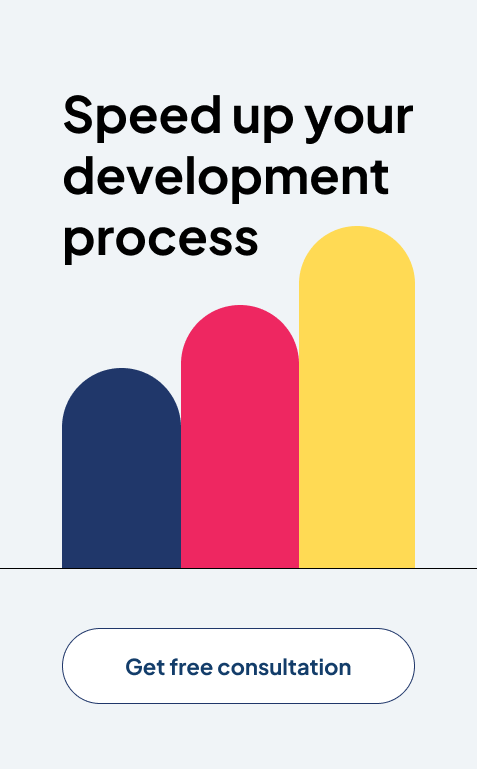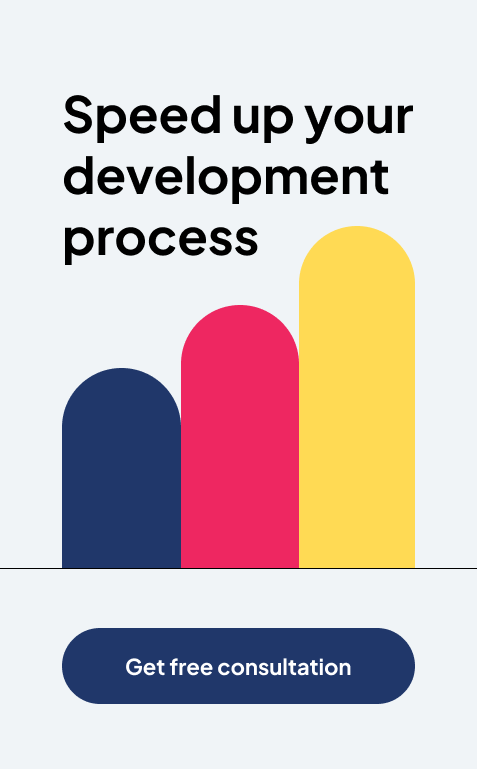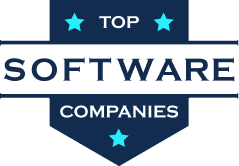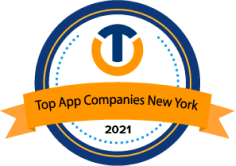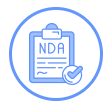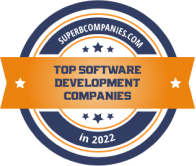Custom Software vs. SaaS Tools: What’s Better for Business Scalability?
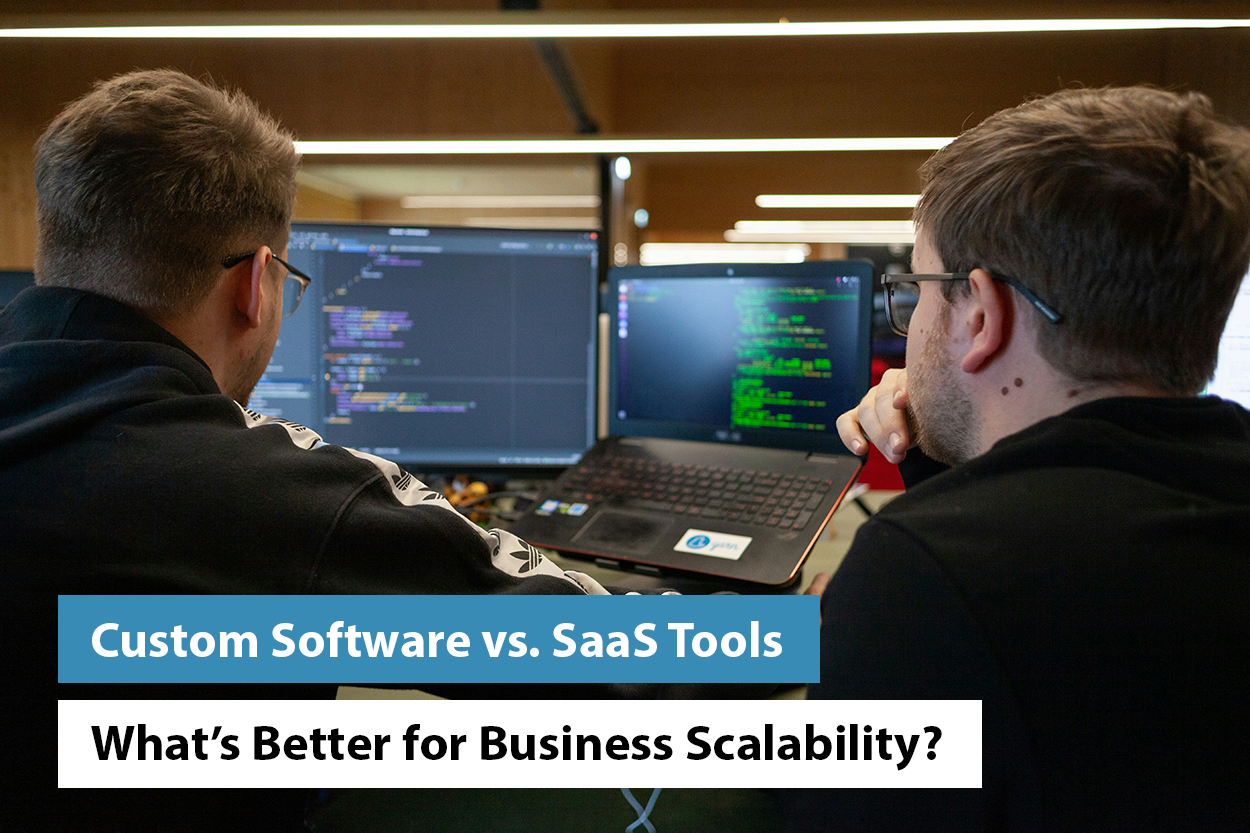
Are you planning to scale your business in 2025? Perplexed about picking custom software over SaaS tools or vice versa. You are not alone!
This is a make-or-break business decision. Hence, your goals, team, and timeline become important to consider before you conclude.
Since you’ve got a growing business and things are moving fast, you’re now facing a big decision that could shape your future:
Should I consider building custom software tailored to my business needs or go with a plug-and-play SaaS tool to move quickly?
Well, it feels like choosing between a tailored suit and one off the rack.
Custom fits better and lasts longer. Also, it is made just for you, which feels more exclusive and precise. But it costs more and takes time.
SaaS? It’s fast, affordable, and easy, but might not keep up when your business scales or pivots.
In today’s competitive landscape, picking the right software model isn’t just about saving time or money, it’s about scalability, flexibility, and control. And the wrong choice? It can slow you down, limit your growth, or trap you in tools that no longer fit.
In this blog, we’ll explore:
- The key differences between custom software vs SaaS tools
- Which one supports long-term business scalability
- Real-world pros, cons, and red flags to watch out for
Let’s unpack the battle: Custom Software vs SaaS, what’s best for your business’s next big leap?
What is Custom Software?
It is a tailor-made solution designed for a business aligned with your company’s workflows, goals, and processes. This way helps you to build the software from scratch and design a software to successfully modify existing solutions.
Think of it like building your own house instead of renting an apartment. You decide the layout, materials, design, and features.
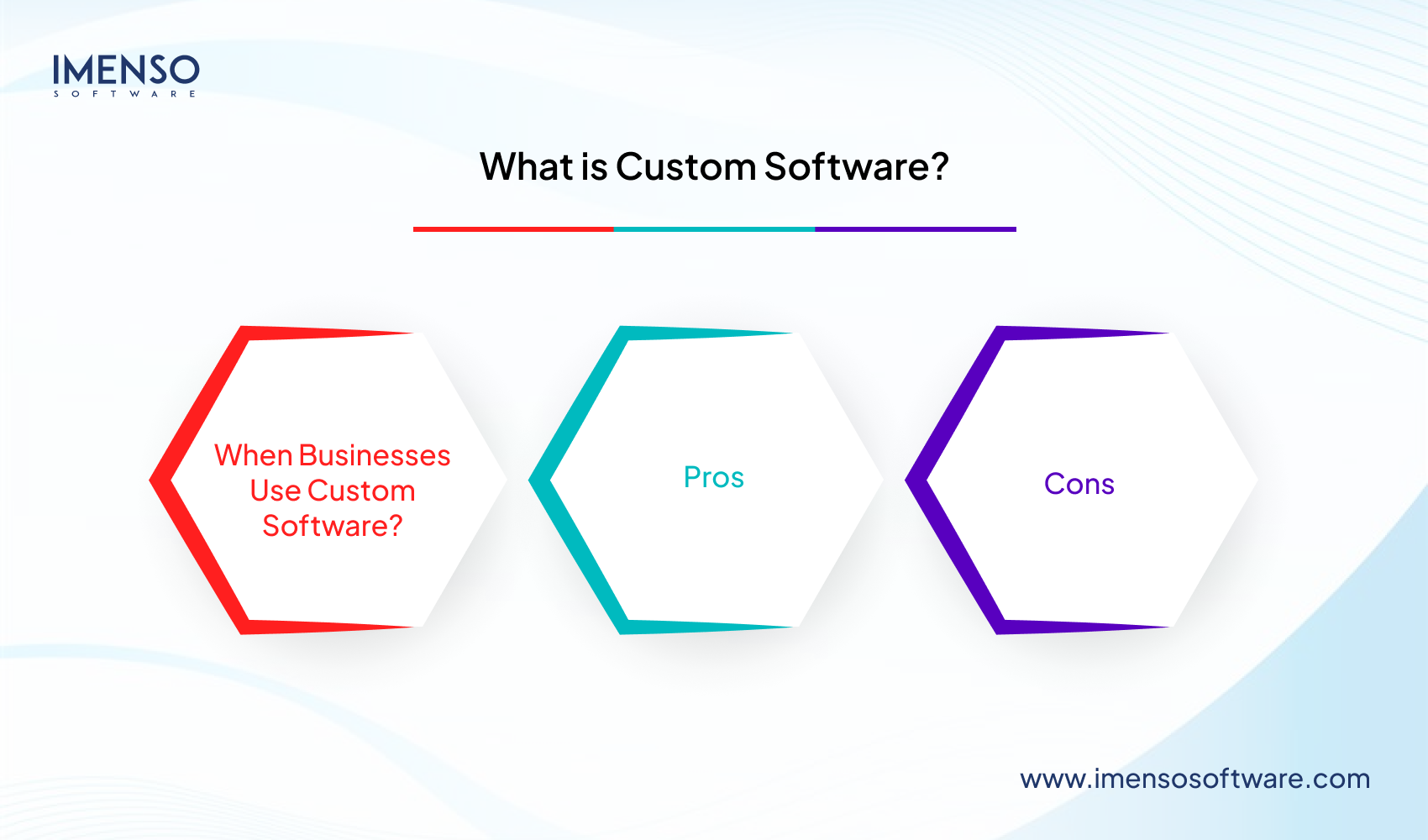
When Businesses Use Custom Software?
- Managing complex internal workflows
- Building unique digital products (e.g., a custom CRM or marketplace)
- Scaling operations with specialized needs
- Integrating with legacy or niche systems
Pros:
- Full customization — you’re not limited by someone else’s feature set
- Better integration — easily connects with internal tools and databases
- Ownership & control — no reliance on third-party subscriptions
- Long-term ROI — upfront investment can pay off as you scale
Cons:
- Higher upfront costs — development can be expensive initially
- Longer time to launch — weeks or months to build properly
- Maintenance required — you (or your team) handle updates, bug fixes, and scaling
Custom software gives you the power to scale exactly how you want, but it demands more time, money, and tech support.
What Are SaaS Tools?
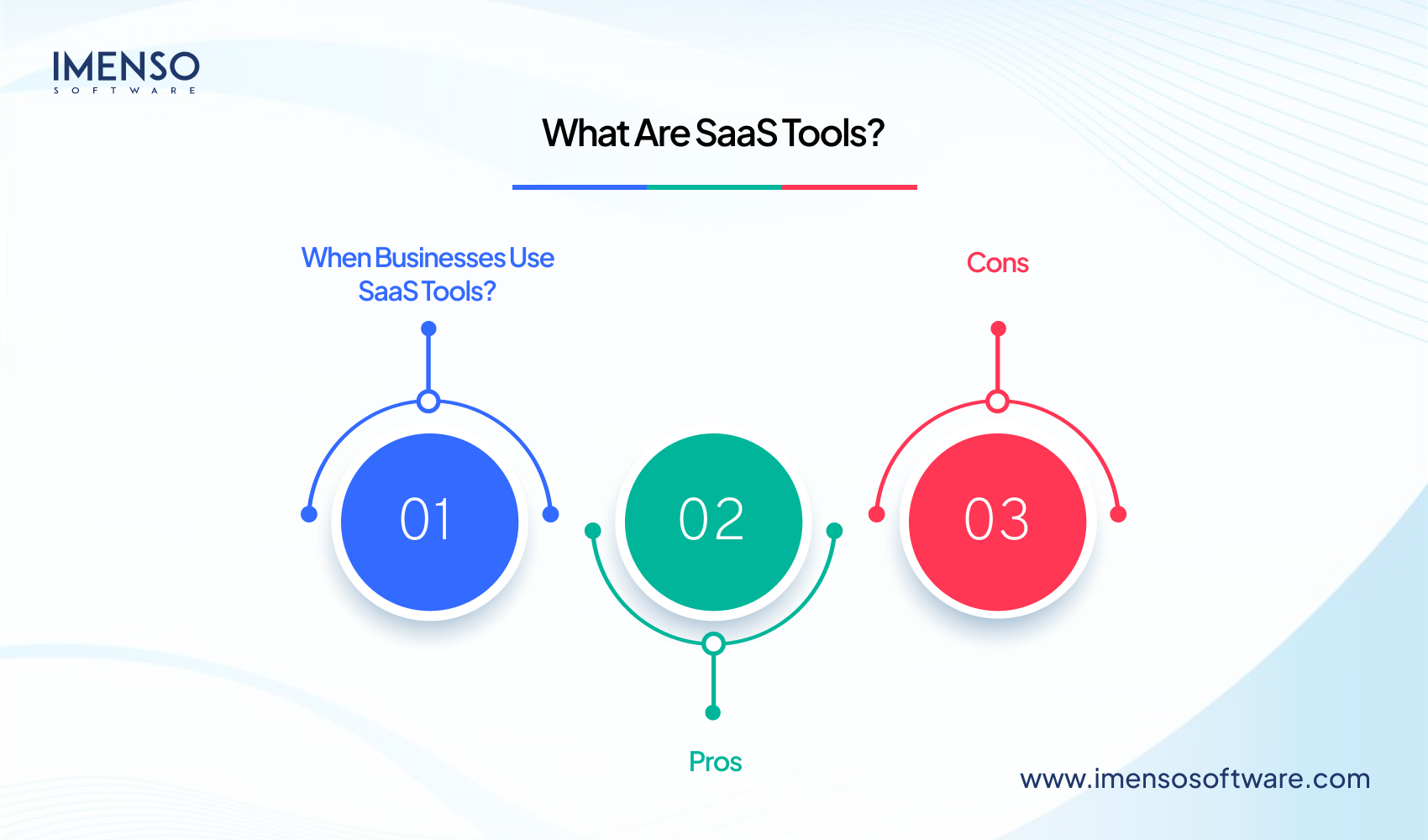
SaaS (Software as a Service) tools are cloud-based applications that businesses subscribe to and use over the internet. You can consider applications like Google Workspace, Slack, Shopify, or QuickBooks. They’re ready-made and easy to access. Also, you need to know zero coding to get started with this.
Instead of building your own software, you simply pay to use what’s already built.
When Businesses Use SaaS Tools?
- Launching quickly without tech overhead
- Handling standard business functions like marketing, sales, HR, or accounting
- Scaling operations without major IT resources
- Testing new workflows or teams with minimal risk
Pros:
- Fast setup — no dev team needed, just log in and go
- Affordable early on — low monthly fees instead of big upfront investments
- Automatic updates — security patches, new features, and bug fixes are handled for you.
- Scalable — most SaaS tools grow with you (tiered pricing/plans)
Cons:
- Limited customization– features and UI are fixed.
- Ongoing costs- monthly or annual fees can add up at scale.
- Less control– you’re dependent on the vendor’s roadmap, support, and data rules.
- Data security– your business data lives on someone else’s servers.
SaaS is perfect for quick growth, but when your needs become too specific, it can start to hold you back.
Scalability: Which One Wins and When?
When your business starts to grow, your software needs to grow with it. But not every solution scales the same way.
Custom Software for Scalability:
Custom software is like a tailored suit. And that is a perfect fit and can be adjusted as you grow. So, does your business have unique processes and handle tons of data? Or do you need complex automation? A custom software is built to handle scale on your terms.
- You choose the infrastructure (cloud, on-premise, hybrid)
- You decide how and when to scale features
- You can design for millions of users from the start
SaaS Tools for Scalability:
SaaS tools are great when you need to scale fast and lean. Most SaaS products are designed with growth in mind—just upgrade your plan or add more users.
- Add new users in seconds
- Pay as you grow
- Benefit from a proven infrastructure without building your own
Real-World Examples:
SaaS Scaling Success:
Canva started as a simple SaaS design tool and now serves over 170 million users with scalable cloud tech.
Custom Software Scaling Win:
Amazon built its own logistics, recommendation engines, and internal tools, giving it a massive edge in efficiency and control.
SaaS Limitation Example:
Some e-commerce brands outgrow platforms like Shopify and move to custom-built solutions when they need complex integrations or unique customer journeys.
Custom Software Failure:
Startups sometimes overbuild custom platforms too early before product-market fit, wasting money on features users didn’t need.
| 🧠 Tip: Start with SaaS for speed. Go custom when your business complexity outgrows one-size-fits-all tools. |
Security & Data Ownership – Who’s in Control?
Data is power in this digital age. And how it’s stored, accessed, and protected can actually make or break your business. So, whether you go with custom software or a SaaS tool, you should know where your data lives and who controls it.
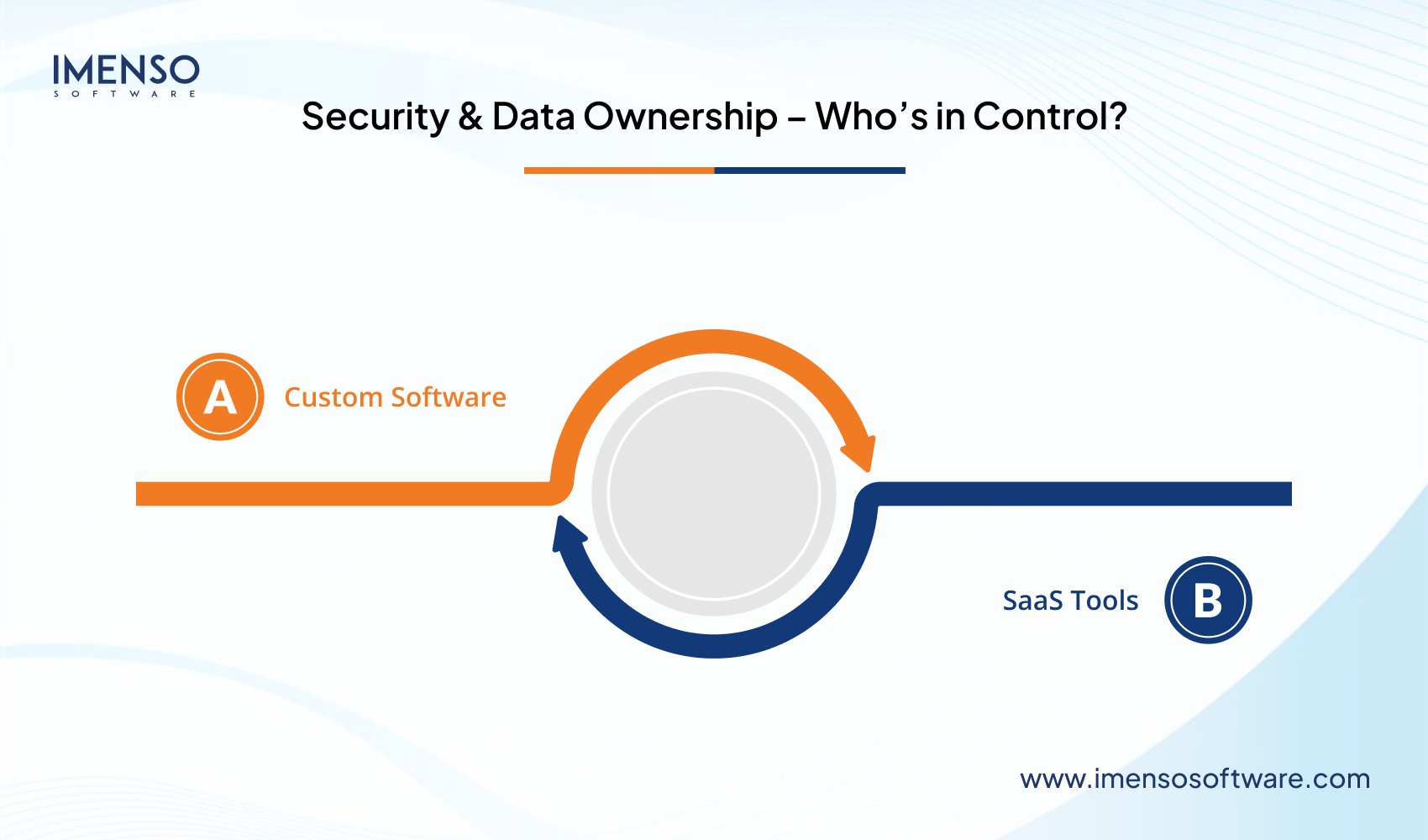
Custom Software:
With custom software, you own everything—code, data, infrastructure, and rules.
- Total control over security protocols
- You choose the hosting (private server, cloud, hybrid)
- Easy to comply with industry-specific standards (e.g., HIPAA, GDPR)
- Downside: You’re responsible for keeping things secure and updated
SaaS Tools:
With SaaS, your data lives on someone else’s servers, and you rely on their security practices.
- Most SaaS vendors offer strong encryption and regular audits
- Built-in compliance for many industries
- Risk of vendor lock-in, data breaches, or unclear ownership policies
You may lose access to your data if you cancel the service.
If data privacy, compliance, or control is mission-critical, custom software is your safer bet.
🧠 Pro Tip:Always read the Terms of Service. Some SaaS vendors have clauses that let them analyze or even share your data. |
Flexibility & Integration: Which One Plays Better With Others?
Do you want your tools to talk to each other from CRMs to payment systems and marketing platforms as your business grows? That’s where flexibility and integration come in.
Custom Software:
Custom software is built around your workflows. It’s like a puzzle piece made just for your business.
- Easily integrate with internal tools or legacy systems
- Can connect to any third-party API you choose
- You can build custom automation, dashboards, or reporting
- Update the system anytime your process evolves
But… this flexibility comes with responsibility: you need a skilled dev team to make changes and manage integrations.
SaaS Tools:
SaaS tools often come with pre-built integrations—Zapier, Slack, Stripe, HubSpot—you name it.
- Plug-and-play integrations with thousands of tools
- Easy setup for non-technical users
- Limited if your business needs unique or deep integrations
- Rely on the SaaS provider’s integration roadmap
If you want full freedom, go custom. If you want speed and simplicity, go SaaS.
Which Is Better for Long-Term Growth?
When planning for the future, your choice between custom software and SaaS tools can shape how quickly and smoothly your business scales.
Custom Software:
- Built to grow with your unique business needs
- Allows for continuous innovation and custom features that give you a competitive edge
- Offers full control over updates and scaling timelines
- Best for companies expecting complex workflows or rapid growth
SaaS Tools:
- Great for quick growth and early-stage companies
- Scales easily by adding users or upgrading plans
- Limits how much you can customize or innovate beyond the vendor’s offerings
- Ideal for businesses with standard processes that don’t require heavy customization
Mini Case Study: From SaaS to Custom — A Startup’s Scaling Journey
Company: CloudFundr – a fintech startup helping SMBs manage short-term financing.
Stage 1: SaaS to Launch Fast
CloudFundr started with a SaaS tool for loan application tracking. It was affordable, quick to deploy, and perfect for MVP validation.
Stage 2: Growth Bottlenecks
As the user base grew, they hit roadblocks:
- Limited API integrations.
- Lack of control over the user dashboard.
- Monthly costs kept rising as more users joined.
Stage 3: Switching to Custom Software
They invested in custom software tailored to:
- Automate lender-matching using proprietary AI.
- Offer a branded portal to partners.
- Maintain full control over customer data and analytics.
Outcome:
- Customer onboarding time dropped by 30%.
- Partner acquisition doubled due to better UX.
- Break-even on development cost in 14 months.
Lesson: SaaS helped them go to market fast, but custom software unlocked scalability and a competitive edge.
Common Mistakes to Avoid
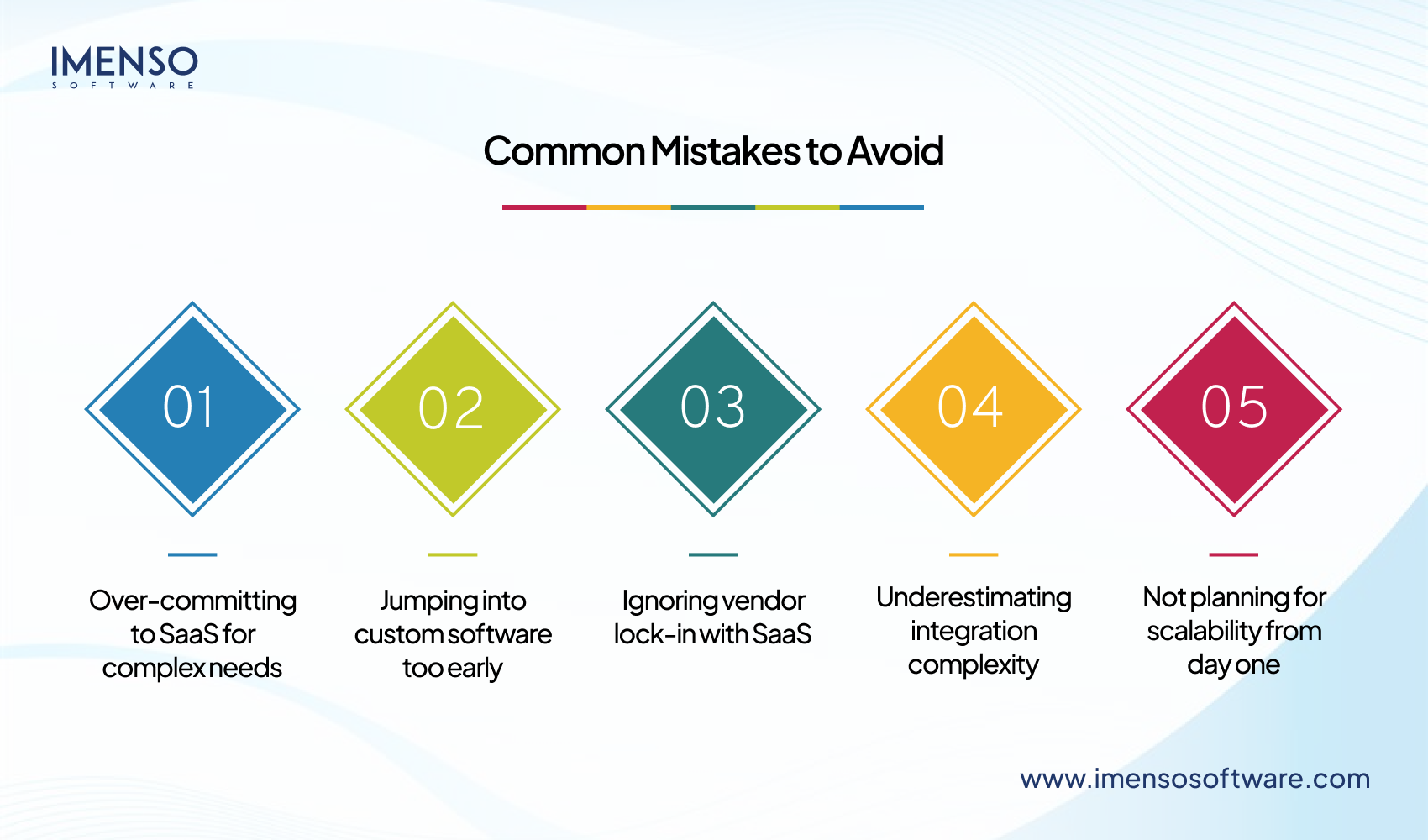
- Over-committing to SaaS for complex needs
SaaS is great for general use, but trying to force-fit advanced or unique workflows can cause friction and slow down your team. - Jumping into custom software too early
Custom builds take time and money. If your idea isn’t fully validated or user demand isn’t clear, you risk wasting resources on features no one uses. - Ignoring vendor lock-in with SaaS
Many SaaS platforms don’t offer clean data export or API access. Always check portability before you commit, especially if you may outgrow the tool. - Underestimating integration complexity
Whether it’s SaaS or custom, integrations can break easily if not planned. Think about future systems you may need to connect. - Not planning for scalability from day one
Choosing a tool because it’s “cheap and fast” is fine—unless it can’t scale with your business. Always ask: “What happens when we hit 10x growth?”
Many successful companies start with SaaS for speed and low cost, then invest in custom software once their growth demands more control and flexibility.
Choose the option that fits your business stage today, but keep an eye on what you’ll need tomorrow.
How to Decide Which One to Consider?
Choosing between custom software and SaaS tools isn’t a one-size-fits-all decision. It depends on your business size, growth plans, budget, and unique needs.
| Factor | Custom Software | SaaS Tools |
| Cost | High upfront, lower long-term | Low upfront, ongoing fees |
| Scalability | Highly scalable, tailored | Scales easily, but is limited |
| Customization | Fully customizable | Limited to vendor features |
| Control & Security | Full control, data ownership | Vendor controls data |
| Integration | Flexible, deep integration | Easy setup, but less flexible |
| Speed to Market | Longer development time | Fast deployment |
How to Decide:
- Start with your business goals. Do you need something quick or fully tailored?
- Consider your budget. Can you afford an upfront investment or prefer predictable costs?
- Think about growth. Will your business need complex features later?
- Evaluate your team. Do you have access to developers or prefer an out-of-the-box tool?
- Prioritize control. How important is data ownership and security?
If you’re launching a fast or small business, SaaS tools can get you started right away. For growing companies with unique needs, custom software offers the freedom and power to scale smarter.
Scale Your Business With Better
Choosing between custom software and SaaS tools is a crucial decision that can define your business’s future. SaaS gives you speed and simplicity, also with a lighter price tag to get started. On the other hand, custom software puts you in the driver’s seat where you have full control and flexibility. You also have a room to grow exactly how you need.
So, what’s the right choice to contemplate and move forward with?
This depends on where your business is today and where you’re heading tomorrow.
You can choose to spend some time thinking about your goals and current budget, along with ways to plan and scale. Because the right decision isn’t about what fits you best.
Frequently Asked Questions (FAQs)
- What is the main difference between custom software and SaaS tools?
Custom software is built specifically for your business needs. It offers full control and customization to your company. On the other hand, SaaS tools are ready-made solutions hosted online and are designed for easy setup and use. - Which option is better for startups having budget limitations?
SaaS tools are generally better for startups due to their low upfront costs and quick deployment capabilities, which address the budget concerns very well. - Can I switch from SaaS to custom software later for my business?
Yes, many companies start with SaaS and transition to custom software as they grow and need more tailored solutions to operate conveniently. - Is custom software always more expensive than SaaS ones?
Yes, planning to own a custom software usually has higher upfront costs. But it can be more cost-effective in the long run for larger or growing businesses. - How important is scalability when choosing between these options?
Very importantly, the custom software offers scalability tailored to your needs, while SaaS tools scale more easily but with some limitations.
Want more information about our services?
Similar Posts
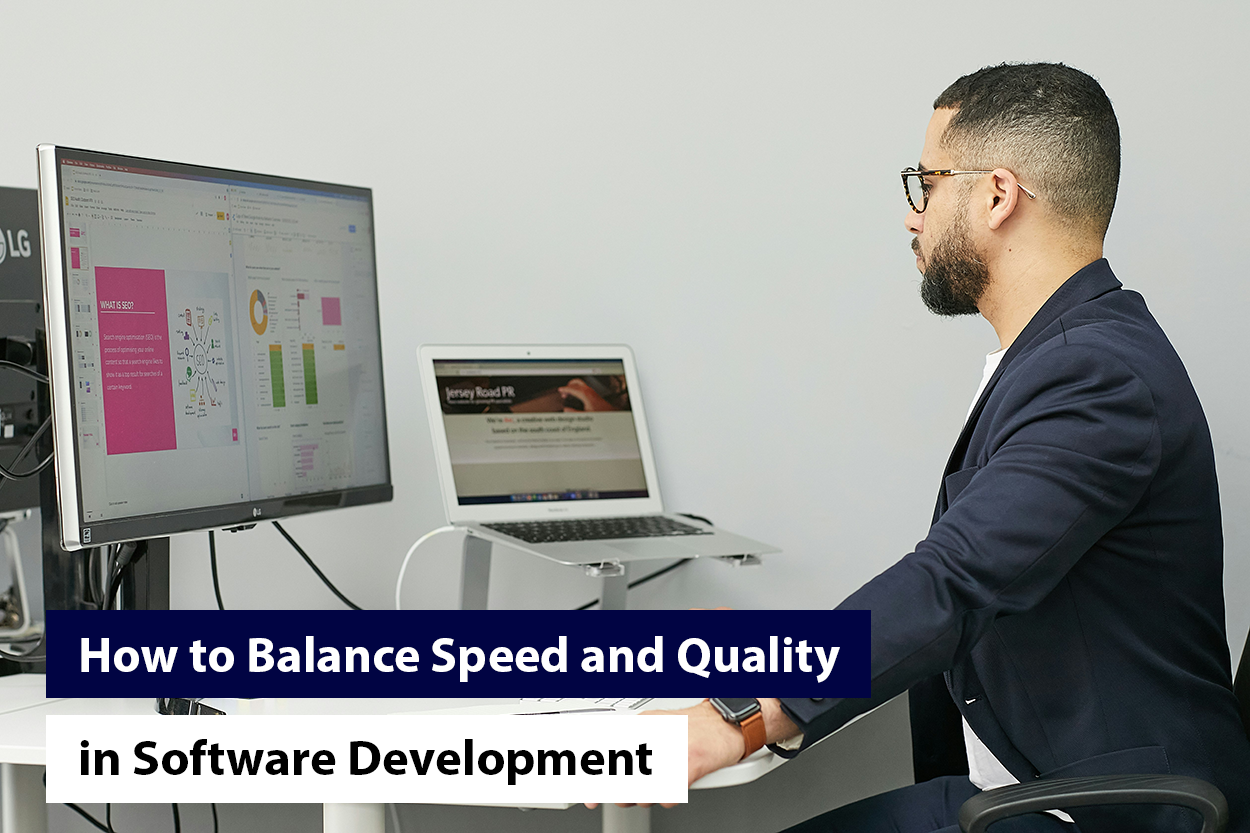
How to Balance Speed and Quality in Software Development
Remember when your competitor pushed out that new app, and it seemed like everywhere? That feels like a happenstance of the day before; in stark contrast, your team was still knee-deep in code. Your project felt like it was stuck in slow motion. You knew something had to change. But how? In software development, we […]...

How to Choose the Right Tech Stack for Your Next Software Project?
It’s not about using the trendiest tools. It’s about using the right tools for the job. ~ Inspired by Jeff Atwood, co-founder of Stack Overflow Starting a new software project? You’ve probably heard the term tech stack thrown around. Hence, it is necessary to pick the right one without getting lost in endless options. Don’t […]...
How To Find The Most Reliable Remote Microsoft Power BI Consultants and Companies for Hiring?
Let’s rewind the event of March 2020, worldwide outbreak of Covid-19 left everyone in shock and life seemed to be at halt for quite sometime. Plenty of cases everyday and the count is still going on. However with new data being added we have moved a step closer each time to the vaccine development program....
